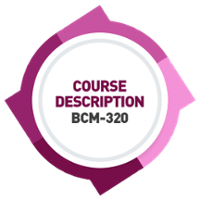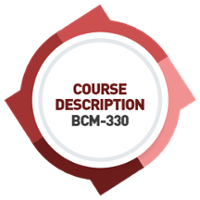Testing & Exercising
![]() This is the final course and implementation stage, during which you are about to attend the third one-day WSQ BCM workshop organised in-house.
This is the final course and implementation stage, during which you are about to attend the third one-day WSQ BCM workshop organised in-house.
This one-day session (module for blended learning) can be conducted to learn how testing and exercising are conducted.
 This article is the seventh and last instalment of the "WSQ Funded BCM Project" series.
This article is the seventh and last instalment of the "WSQ Funded BCM Project" series.
This is the reading for participants embarking on a BCM implementation using a combination of training with funding from the Singapore government and consulting to develop, implement and finalize its BCM program for an organisation.

 When the business continuity plan is complete, the logical next step is to ensure that it works as intended. If there are errors, omissions, or unforeseen side effects, these are identified and addressed.
When the business continuity plan is complete, the logical next step is to ensure that it works as intended. If there are errors, omissions, or unforeseen side effects, these are identified and addressed.
This module aims to equip participants with the skills to plan and execute a test or exercise. Participants should apply this knowledge to their business units and complete one testing cycle.
The process of conducting the "Testing and Exercising" module or "TE" in the WSQ-based BCM Project is as follows:
1. Supplementary Readings
Participants will receive emails containing bite-size information on business continuity strategies. The purpose of doing so is to introduce them to the key concepts ahead of the coming workshop. This helps participants optimize their time at the workshop.
What participants should do:
Participants are encouraged to read the supplementary material and jot down any questions.
2. Workshop [Online]
 A workshop is conducted to guide business unit BCM coordinators to use the findings from the earlier phases to:
A workshop is conducted to guide business unit BCM coordinators to use the findings from the earlier phases to:
- Design and plan for a test or exercise
- Execute the test or exercise
- Report on the conclusions and follow-ups of the test or exercise
The first part of the workshop focuses on teaching participants about the principles and theories of testing and exercising.
The second part will allow participants to learn by having them design an exercise and execute it with their coursemates.
Templates are used to facilitate the above testing and exercising processes.
What should participants do "Before" the [Onsite and Online] workshop?
Participants are encouraged to read the supplementary materials in the email before the workshop and review the BC plan developed in the previous module.
What should participants do "During" the [Onsite and Online] workshop?
Participants will use the templates to design and conduct a mini-exercise in class. All templates are to be completed and submitted to the facilitator at the end of the workshop.
The soft copy of the TE templates will be sent to participants before the workshop; participants should load the templates onto their laptops and have them available during the workshop.
Participants should also bring the templates from the earlier phases to the workshop.
The above will be done in an online workshop using the Zoom application.
It is useful to note that because the workshop is a one-time group event, it is important that participants lock this event in their calendars.
No repeat workshop will be conducted for absent participants, and SSG may not approve the course subsidy if the participant is absent for more than 75% of the module.
Value-Adding Service
Access to the eLearning module is subject to BCM Institute's agreement with the in-house organization.
3. Demonstration
The workshop facilitator will briefly demonstrate how a simple tabletop exercise could be conducted. This demonstration is carried out before participants attempt to design and execute their tabletop exercise.
4. Assessment [Onsite and Online]
A simple open-book assessment (approximately 20 mins) comprising a few easy-to-answer questions will be conducted for the participants. This assessment is a requirement from SSG to qualify for government funding. For an Online workshop, the evaluation will be conducted through Zoom.
What participants should do for both Onsite and Online:
- Review the course notes on testing and exercising
- Be prepared to answer oral questions during the assessment session.
This module completes the cycle of business continuity planning based on WSQ modules.
5. Public WSQ Course
If you are a new business unit BCM coordinator and need knowledge of "Testing and exercising," your colleague can attend a similar public WSQ course. This course is WSQ-BCM-330 (Course code), titled "Testing and Exercising Business Continuity Plans."
Once this session is completed, you will be ready to conduct tabletop exercises for your department.
6. Future Readings on TE
 If you are interested in having a deeper insight on testing and exercising processes and techniques, this BCM Planning Series book "Testing & Exercising Your Business Continuity Plan" may be a useful resource for your future learning journey.
If you are interested in having a deeper insight on testing and exercising processes and techniques, this BCM Planning Series book "Testing & Exercising Your Business Continuity Plan" may be a useful resource for your future learning journey.



![[BL] [2] [RAR] WSQ Funded BCM Training and Project: Running the Risk Assessment](https://no-cache.hubspot.com/cta/default/3893111/b8cae5c7-407e-46e1-8ab7-e1dc0d1d6dd9.png)
![[BL] [3] [BIA]: WSQ Funded BCM Training and Project: Executing the Business Impact Analysis](https://no-cache.hubspot.com/cta/default/3893111/5ad02a1f-0b6e-4b06-a285-036955b14572.png)
![[BL] [4] [BCS] WSQ Funded BCM Training and Project: Evaluating the Business Continuity Strategy](https://no-cache.hubspot.com/cta/default/3893111/f1eca023-b7b6-4efd-b7c2-bb5301b3845e.png)
![[BL] [5] [PD] WSQ Funded BCM Training and Project: Implementing the Business Continuity Plan](https://no-cache.hubspot.com/cta/default/3893111/f83c215b-a30e-4620-8dbf-de639267f5f3.png)
![[BL] [6] [TE] WSQ Funded BCM Training and Project: Executing Tests and Exercises](https://no-cache.hubspot.com/cta/default/3893111/59457891-68bd-4e23-ab1e-44d793c03e28.png)







